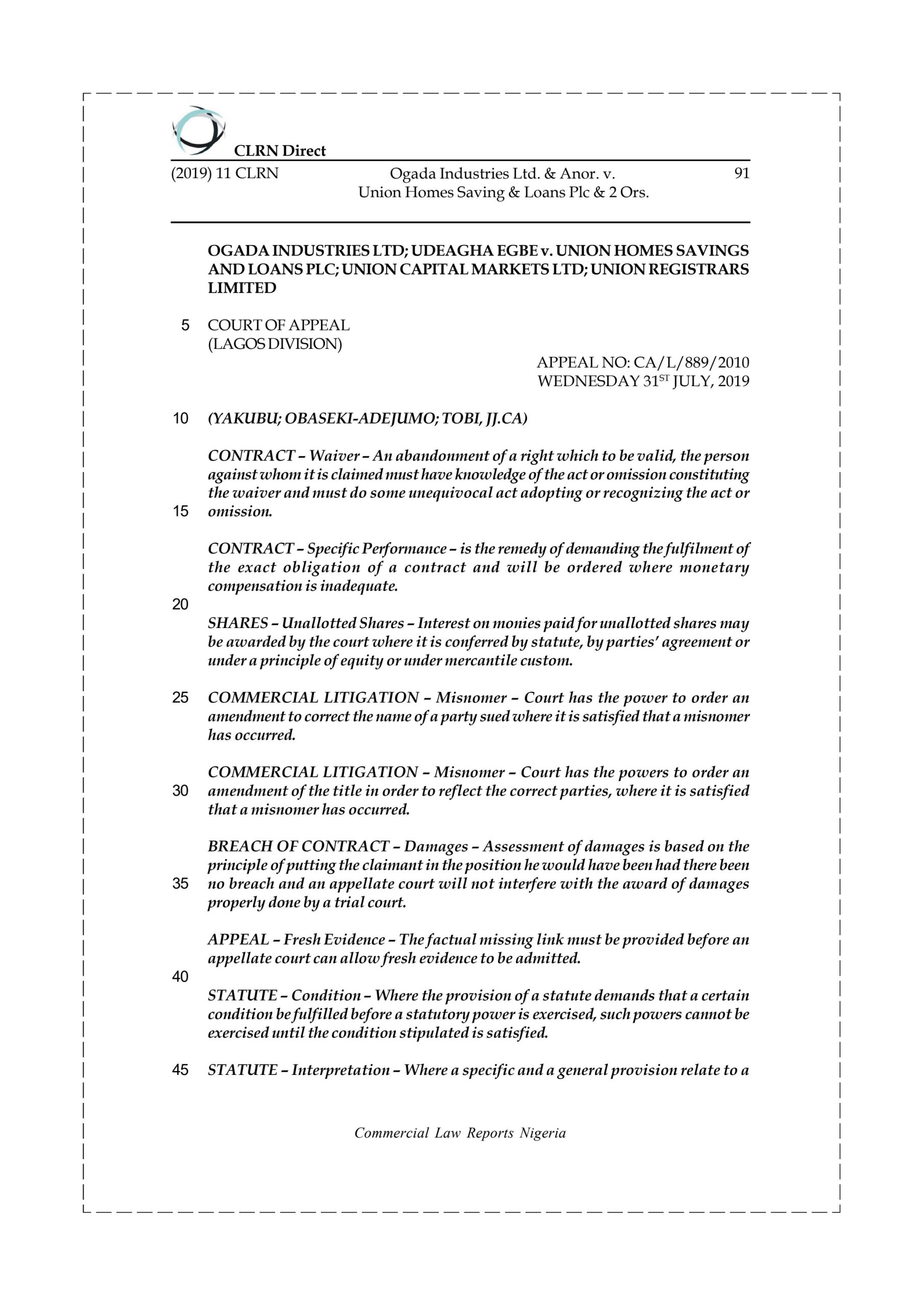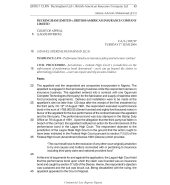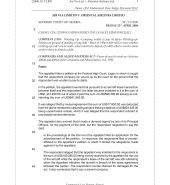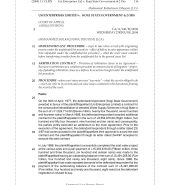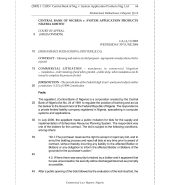-

SKYE BANK v. MOBOLAJI ODUFUWA
- kg
1 × ₦300
-

FIDELITY BANK PLC v. VERVE NIGERIA LIMITED
- kg
1 × ₦300
OGADA INDUSTRIES LTD. & ANOR v. UNION HOMES SAVINGS AND LOANS PLC & 2 ORS.
₦300
In Stock
Facts:
The appellants are shareholders in the 1st respondent. An offer of rights issue was made by the 1st respondent to all its shareholders to purchase three new ordinary shares for every two ordinary shares owned before the close of business on the 11th August, 2006. In response to the offer, the 1st appellant applied for the allotment of 11, 227, 420 (Eleven Million, Two Hundred and Twenty Seven Thousand, Four Hundred and Twenty) shares in the 1st respondent. The application was accompanied by a cheque for payment. The 2nd and 3rd respondents who handled the transactions, sent the application to the Central Bank of Nigeria (CBN) for approval. The application was rejected by the CBN on the ground that there was no evidence of payment tendered in respect of the application. In a letter dated the 26th March, 2007 sent to the respondent, CBN listed the appellants among the rejected subscriptions.
The appellants were aggrieved and requested from the respondents the reason for the rejection of their application. The respondent replied and on the 4th June, 2007 asked the appellants to come for a refund of their money earlier paid but the appellants declined the offer and proceeded to lodge a complaint and filed a petition against the respondents at the Securities and Exchange Commission (SEC). At the SEC’s proceedings of 8th April, 2009 the 1st respondent confirmed receipt of the appellant’s application but could not explain why the appellants’ cheque was not forwarded to the Issuing House. Consequently, SEC directed the 1st respondent, to within two weeks, furnish it with evidence that it indeed forwarded the appellants’ cheque to the Issuing House and if not, reasons why it could not. The 1st respondent failed to furnish SEC with the information within the time stipulated. By a letter dated 9th July, 2009 SEC issued its award on the matter. In their petition, the appellants sought to recover loss of value, dividends, bonus shares, order for specific performance of the contract and damages. In its award, SEC refused to grant the prayers for damages.
Dissatisfied, the appellants filed an appeal at the Investments and Securities Tribunal (IST). In the course of the proceedings at the Tribunal, the respondents filed an application seeking the leave of court to adduce fresh evidence. The fresh evidence was in respect of the investigation into the reasons for the rejection of the appellant’s application. The 1st respondent’s company secretary deposed to an affidavit wherein it was stated that the application form was improperly filled making the application void and that the cheque which accompanied the application was defective and that as a result, the cheque could not be submitted to the Issuing House for transmission to the CBN. In dismissing the application, the Tribunal held that the fresh evidence was uncertain and speculative.
In their appeal at the Tribunal, the appellants sought a refund of its money, interest and damages of the sum of N39,011,357 (Thirty Nine Million, Eleven Thousand, Three Hundred and Fifty Seven Naira) for breach of contract. At the end of proceedings, the Tribunal dismissed the appeal and held that the reliefs sought in the appeal were different from that sought by the appellant at the proceedings before SEC.
Further dissatisfied, the appellant filed a notice of appeal at the Court of Appeal, Lagos Division. One of the issues for determination is whether the SEC and the Tribunal concurrent award of specific performance of the contract is an award of what the appellant sought at SEC and whether the concurrent award is in accordance with settled principles of law concerning award of damages in respect of breach of contract and negligence.
The respondents were also dissatisfied with the ruling of the Tribunal dismissing their application concerning fresh evidence as to why the appellants’ application was rejected. Consequently, they filed a cross appeal. One of the issues is whether the Tribunal wrongfully exercised its discretion in dismissing the respondents’ application for leave of court to adduce fresh evidence which clearly established that the appellants’ application for allotment of shares was null and void ab initio.
